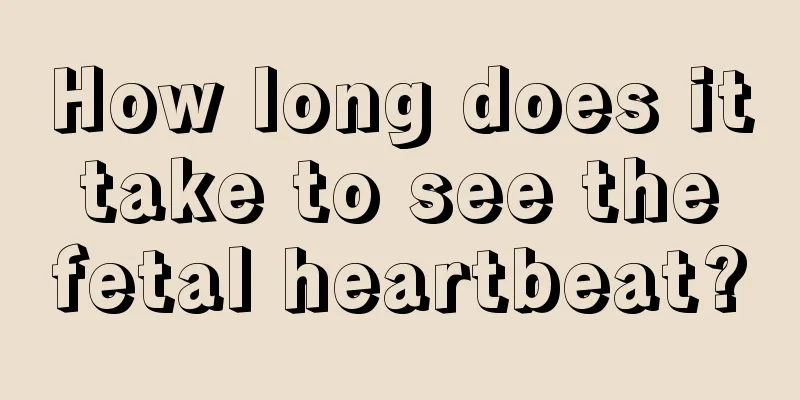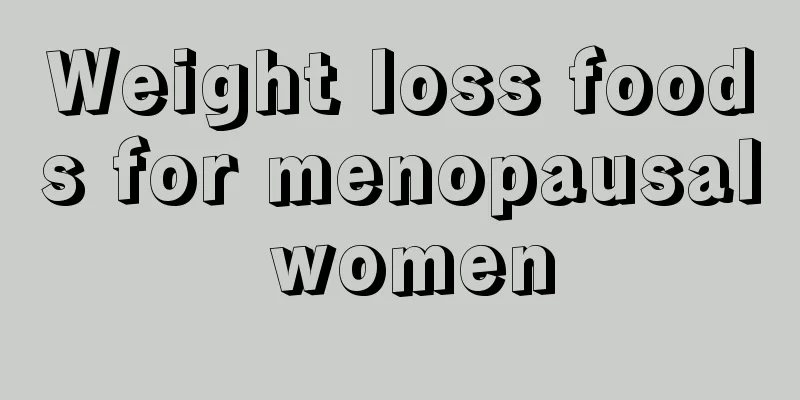Dizziness during pregnancy

|
We all know that there are many pregnancy reactions during pregnancy, and the pregnancy reactions are most obvious when the pregnancy is more than three months, including morning sickness, dizziness, drowsiness, etc. Many pregnant mothers will experience dizziness. Although dizziness is not a big problem, it is during pregnancy after all, so you must be careful in all aspects and seek treatment if you feel uncomfortable. So why do you feel dizzy when you are more than three months pregnant? 1. Why do I feel dizzy when I am more than three months pregnant? 1. Early pregnancy reaction When we know we are pregnant, the formation of the embryonic villi will secrete chorionic gonadotropin, which will cause various uncomfortable reactions in pregnant women. Dizziness is one of the common symptoms. 2. Anemia When we become pregnant, the blood volume of the circulatory system begins to increase at 6 to 8 weeks of pregnancy, reaches its peak at 32 to 40 weeks of pregnancy, and continues until delivery. If you do not pay attention to iron intake and supplement protein, folic acid and other vitamins, anemia is likely to occur. When anemia occurs, pregnant women often feel dizzy or feel lightheaded when squatting or standing up. 3. Hypoglycemia The fetus develops at an astonishing rate every day in the mother's body, constantly obtaining various nutrients from the mother. If some mothers say: I won’t eat if I’m not hungry; I’m too busy at work to eat, etc., the fetus will continue to absorb nutrients regardless of whether the mother eats or not. The mother will suffer from hypoglycemia due to hunger, and will feel dizzy or even faint. 4. Hypoxia Oxygen is vital for a pregnant woman, so pregnant women are very sensitive to hypoxia. When a pregnant woman is deprived of oxygen, the fetus will suffer from intrauterine distress and even intrauterine fetal death due to lack of oxygen. 5. Cervical spondylosis Cervical spondylosis is a general term for cervical osteoarthritis, hypertrophic cervical spondylosis, cervical radiculopathy, and cervical disc herniation. It is mainly due to long-term strain of the cervical spine and bone hyperplasia, which causes compression of the cervical spinal cord, nerve roots or vertebral arteries. Its main symptoms are soreness in the head, neck, shoulders, back, arms, stiff neck and limited movement. Some are accompanied by dizziness, room spinning and other problems. |
<<: Placenta double vertex at the bottom of the uterus at four and a half months of pregnancy
>>: Pregnant woman for more than five months has to go to the toilet after sex
Recommend
What is the treatment for breast ductal adenomas?
Breast disease is a common and frequently occurri...
Does brown blood count as the first day of your period?
Many people have experienced dark brown menstrual...
What kind of tea is suitable for health preservation in winter? Winter health tea review
As people's awareness of health preservation ...
What is the difference between low temperature baking and frying? How to use the baking and conditioning cream tart special?
Baking, also known as roasting, refers to the pro...
Pregnant again three months after abortion_Pregnant again three months after abortion
In fact, for female friends, the harm to the body...
My period has come for a month and it still doesn't stop. What should I do?
There is a serious situation for women, that is, ...
What should I do if the toilet smells bad? The harm of toilet bacteria to people
When it comes to toilets, I believe many people a...
What are the tips for buying green beans? Are green beans poisonous if they are not ripe?
French beans are a very nutritious food. There ar...
How to keep healthy for a 40-year-old woman
Women want to take care of themselves when they r...
What to drink when you have period pain
Many female friends experience abdominal pain dur...
"Breakthrough therapy"! Chinese scientists activate new role of "anti-cancer agent"
Hepatocellular carcinoma is one of the malignant ...
What does it mean when a woman is wet down there?
I believe that most adults are quite curious. Dur...
Interesting words about medicine | Potassium permanganate (with audio)
Your browser does not support the audio tag...









